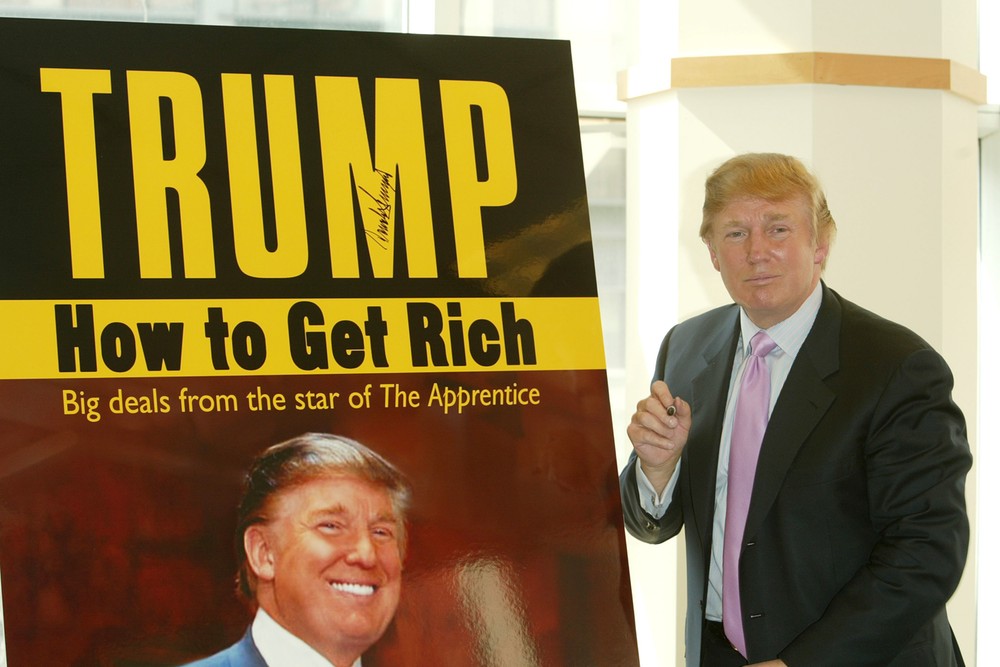
22 Nov Trump To Settle His University Lawsuits After Six-Year Battle
After an aggressive six-year battle against former customers of his now-defunct Trump University, Trump announced on Friday of last week his intentions to accept a $25 million settlement. Attorney General Eric Schneiderman said in a statement that the settlement was “a stunning reversal by Donald Trump and a major victory for the over 6,000 victims of his fraudulent university,” and “that under the terms of this settlement, every victim will receive restitution and that Donald Trump will pay up to $1 million in penalties to the State of New York for violating state education laws.”
The news comes less than two weeks after Trump being elected president, and ten days before jury selection was scheduled to begin in San Diego in the oldest case, Makaeff v. Trump Univ., LLC, filed in April 2010. “We definitely detected a change of tone and change of approach” after the election, plaintiffs’ attorney Jason Forge said when the agreement was announced Friday. Forge said the agreement was reached an hour before a hearing to rule on Trump’s latest request to delay the trial until after the Jan. 20 inauguration.
The gravamen of the lawsuits against Trump University, LLC and Donald J. Trump was that they made false representations in advertisements, mailings and programs regarding Donald Trump’s involvement in the University, and the contents of the programs that students would receive. See, e.g., Makaeff v. Trump Univ., LLC, No. 3:10-CV-0940-GPC-WVG, 2014 WL 688164, at *1 (S.D. Cal. Feb. 21, 2014). Plaintiffs included those who purchased a Trump University 3–day live “Fulfillment” workshop and/or a “Elite” program within the applicable statute of limitations and did not received a full refund.
Specifically, the lawsuits alleged Trump University gave infomercial-like seminars which constantly pressured students to spend more and, in the end, failed to deliver on its promises. Court documents unsealed in May further revealed Trump University’s strategies for enticing people to enroll even if they couldn’t afford it, and transcripts of Trump’s depositions established that Trump had acknowledged he played on people’s fantasies.
Trump claimed a 98-percent customer satisfaction rate on internal surveys for the school, but plaintiffs countered the surveys were skewed because students were asked to rate the product at a time when they anticipated getting more instruction, and were reluctant to openly criticize their teachers on non-anonymous surveys.
About 7,000 students could receive at least half and possibly all their money back, as much as $35,000, if U.S. District Judge Gonzalo Curiel approves the settlement. The plaintiffs’ attorneys waived their fees. Under the settlement, President-elect Trump would not admit any wrongdoing in settling the two federal class-action lawsuits in San Diego, Makaeff v. Trump Univ., LLC, No. 3:10-CV-0940-GPC-WVG, and Low v. Trump Univ., LLC, No. 313CV02519GPCWVG, and a lawsuit brought by New York Attorney General Eric Schneiderman, a Democrat.
During the campaign, Trump denied the allegations and said he would not settle because he does not “want to settle cases when we’re right…. [W]hen you start settling cases, you know what happens? Everybody sues you because you get known as a settler. One thing about me, I am not known as a settler.” Trump’s no-settle attitude came out in a recent tweet, where he said “[t]he ONLY bad thing about winning the Presidency is that I did not have the time to go through a long but winning trial on Trump U. Too bad!”
Trump’s political rivals used the lawsuits to portray Mr. Trump as dishonest and deceitful, and Trump incited more attention by suggesting Judge Curiel’s Mexican heritage exposed a bias. Also, as recent as August, Donald Trump accused the Obama administration of having a part in the NY Attorney General’s investigation. Trump said Obama arranged a campaign contribution to Schneiderman from a law firm representing victims of Trump’s scam.
The agreement resulted in cancelling the trial, which was expected to last several weeks and to generate controversial daily news coverage. Trump’s attorneys said the settlement allows the president-elect to focus his full attention on his transition to the White House. “He was willing to sacrifice his personal interests, put this behind him, and move forward,” Petrocelli said. Alan Garten, the Trump Organization’s general counsel, said he had “no doubt” Trump would have prevailed at trial.
However Richard Painter, an ethics lawyer at the White House under Republican President George W. Bush, said the settlement might backfire if the plaintiffs’ lawyers “smell blood in the water” and believe Trump is eager to settle to avoid court cases while president.


No Comments